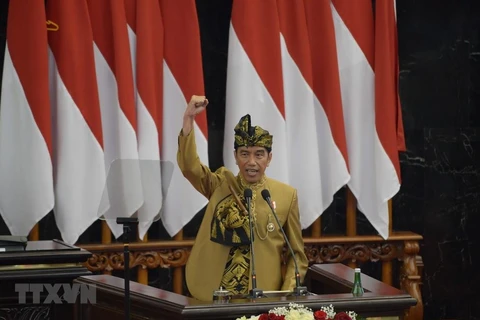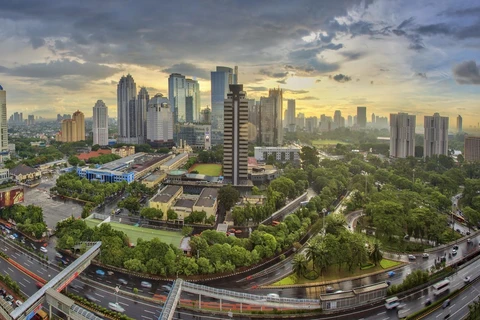Jakarta (VNA) – The Energy and Mineral Resources Ministry of Indonesia on September 2 announced the country will stop exporting nickel from January 1 next year to boost domestic metallurgy amid concerns over limited nickel reserves.
The date is two years earlier than the government’s initial plan to ban nickel ore exports in January 2022.
According to coal and minerals director general Bambang Gatot Ariyono, Indonesia has nickel reserves of about 698 million tonnes that could be mined for the next seven to eight years.
Indonesia exported 38 million tonnes of nickel from January to July this year, he said, adding that the country has potential reserves of about 2.8 billion tonnes of nickel but they needed to be explored.
Last year, Indonesia was the world’s largest nickel producer with output of 560,000 tonnes. The nation’s average production is expected to grow 8.1 percent in the 2018 – 2027 period, outperforming all other global nickel producers like the Philippines and Canada.
However, it mainly exported raw nickel ore rather than products such as batteries or stainless steel slabs.
Bambang said the ban of nickel ore exports was in line with the national plan to accelerate the establishment of smelters so Indonesia could sell value-added nickel products.
He noted Indonesia would need 81 million tonnes of nickel ore per year as it currently has 11 working smelters and plans to build 25 more. –VNA
The date is two years earlier than the government’s initial plan to ban nickel ore exports in January 2022.
According to coal and minerals director general Bambang Gatot Ariyono, Indonesia has nickel reserves of about 698 million tonnes that could be mined for the next seven to eight years.
Indonesia exported 38 million tonnes of nickel from January to July this year, he said, adding that the country has potential reserves of about 2.8 billion tonnes of nickel but they needed to be explored.
Last year, Indonesia was the world’s largest nickel producer with output of 560,000 tonnes. The nation’s average production is expected to grow 8.1 percent in the 2018 – 2027 period, outperforming all other global nickel producers like the Philippines and Canada.
However, it mainly exported raw nickel ore rather than products such as batteries or stainless steel slabs.
Bambang said the ban of nickel ore exports was in line with the national plan to accelerate the establishment of smelters so Indonesia could sell value-added nickel products.
He noted Indonesia would need 81 million tonnes of nickel ore per year as it currently has 11 working smelters and plans to build 25 more. –VNA
VNA






















